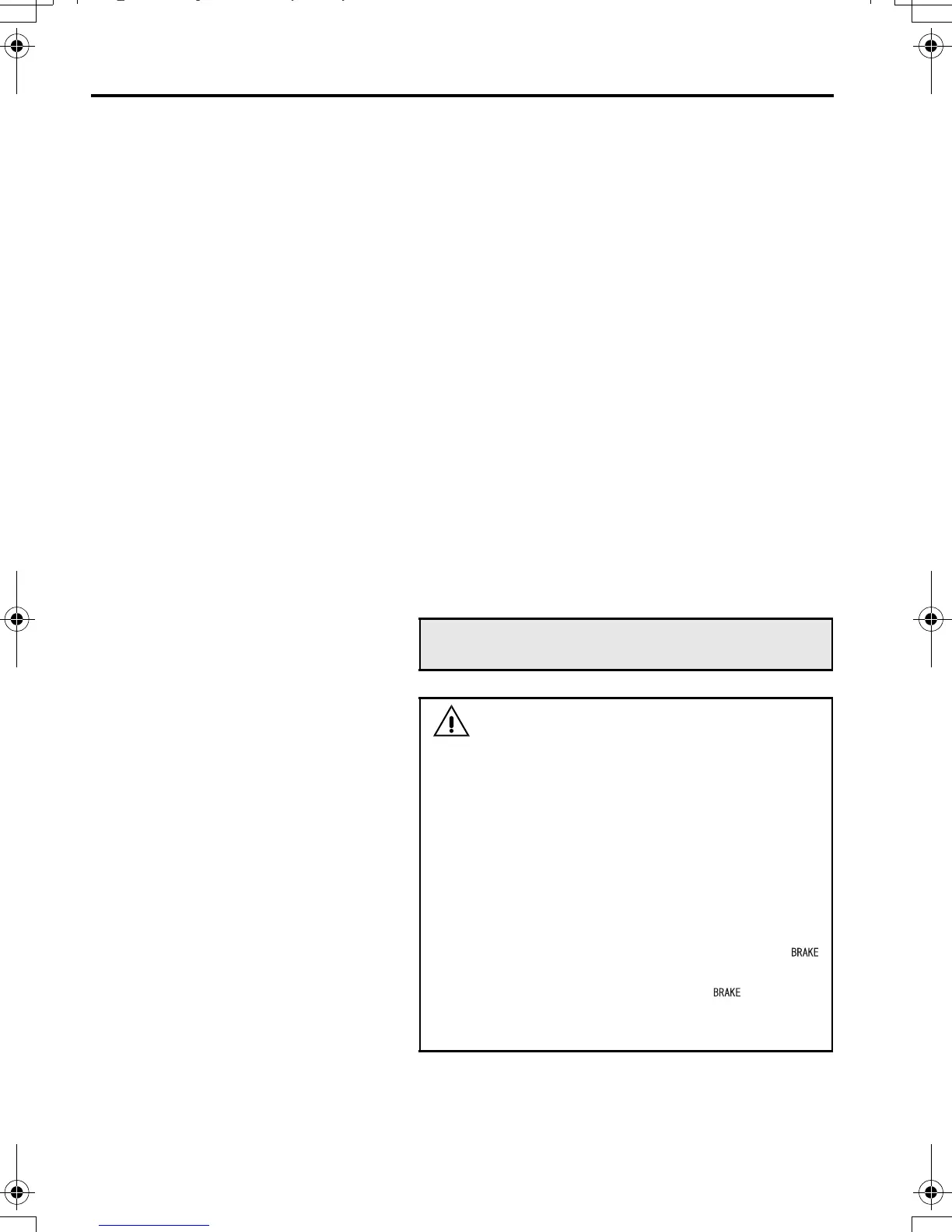7-14 Starting and driving
• Avoid driving when the road is covered with
much water because of torrential rain or other
causes. Should your vehicle be soaked by
water, have it inspected by an authorized dealer
as soon as possible.
• If water gets into the engine, it can cause
engine damage.
• If water gets into the high-current fuse box, it
can cause a short circuit that may result in a
fire.
• If water gets into wheel hub bearings, king
pins, tie rod ends, and the components
around them, it can cause the bearings and
other parts used in them to be rusted and
ultimately to seize up.
• If water gets into the DPF, the oxidation cata-
lyst and ceramic filter could be damaged.
• In fog, drive carefully at low speeds, paying
attention to the center line and the vehicle
ahead of you.
• When driving in snow or on frozen roads, use
tire chains or snow tires and drive at a moderate
speed. Avoid sudden braking and sharp turns.
Parking
WARNING
• Park the vehicle on the flattest available
surface.
Avoid parking on slopes.
When you cannot avoid parking on a
slope, apply chocks to the wheels. You
can further improve safety by leaving the
steering wheel turned so the vehicle will
roll toward an obstacle (for example, a
curbstone) in the unlikely event of move-
ment.
• Brake faults that would cause the
warning lamp to illuminate have no effect
on the parking brake. If the warning
lamp illuminates, be sure to apply the
parking brake.
FE_FG.book Page 14 Wednesday, January 14, 2009 7:08 PM

